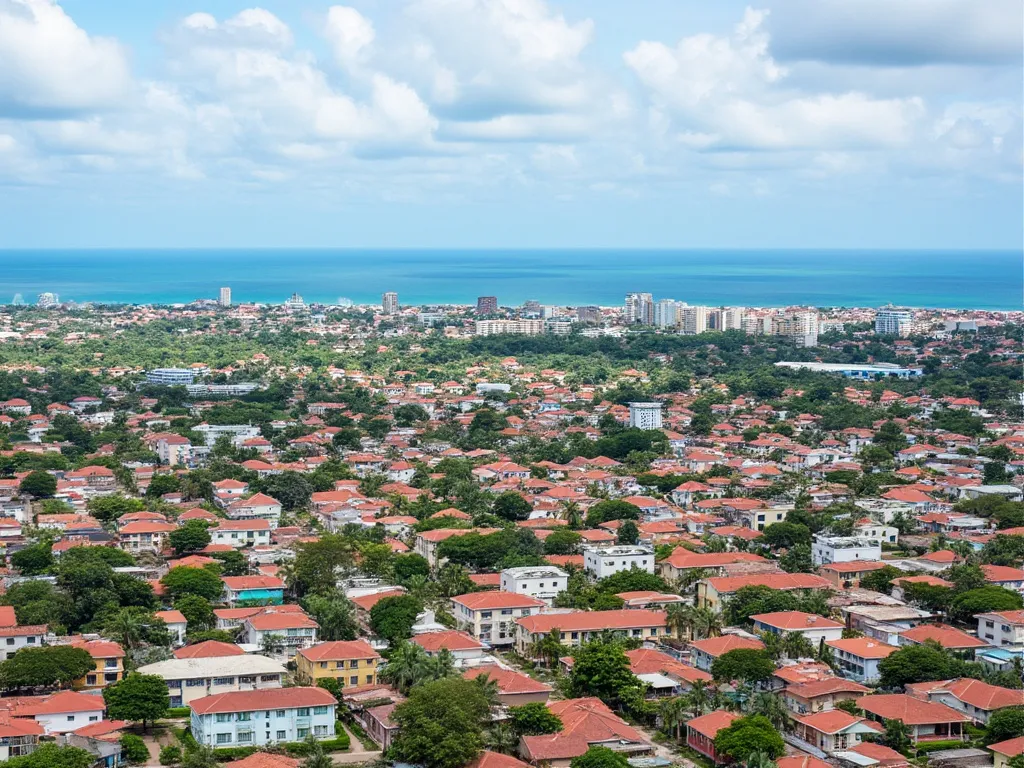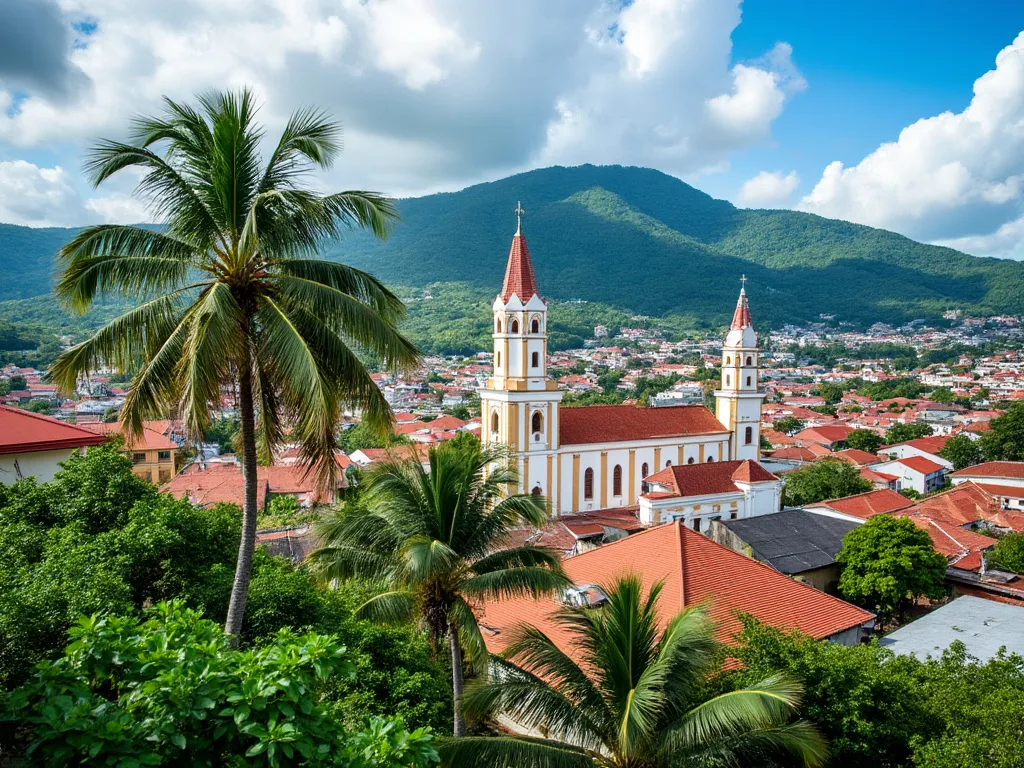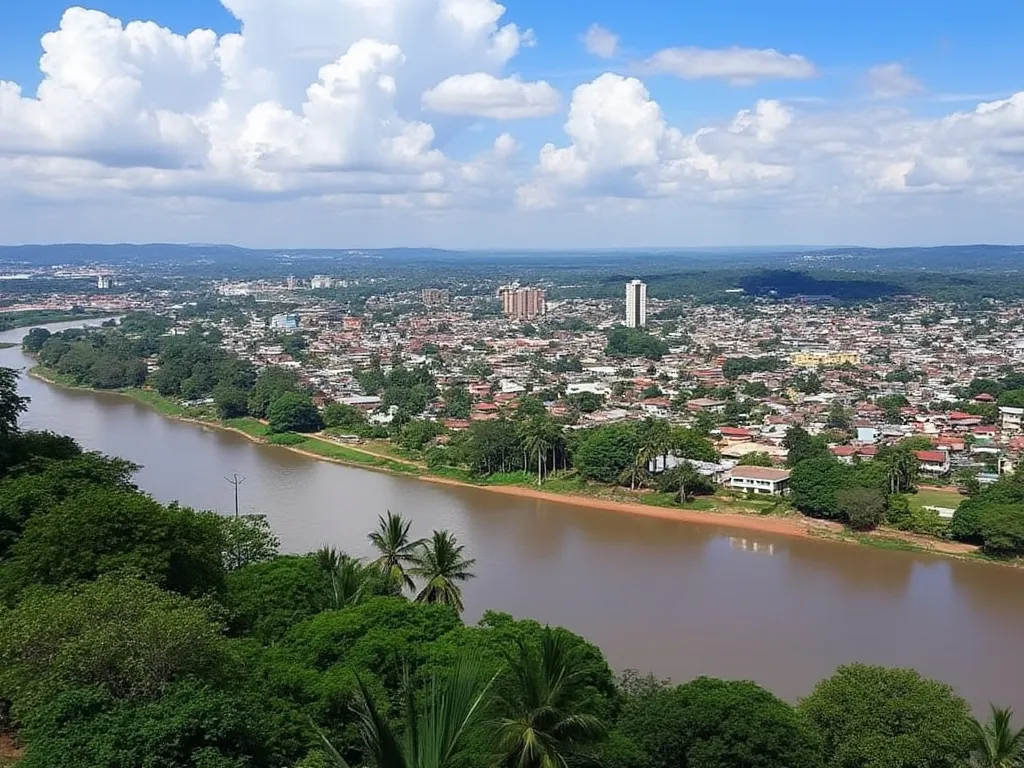
Banjul, the capital and fourth largest city of The Gambia, is a unique and historically significant urban center located on St. Mary's Island (Banjul Island) at the mouth of the Gambia River. Despite its relatively small size, Banjul plays a crucial role as the administrative, economic, and cultural heart of the country. This coastal city serves as a gateway to The Gambia, blending colonial heritage with modern African urban life.
Banjul Information
| Country | 🇬🇲 Gambia |
| Population | 31,301 (2013 census) |
| Coordinates | 13°27′N 16°34′W |
| Area | 12 km² (4.6 sq mi) |
| Climate | Tropical savanna climate (Köppen: Aw) |
| Language | English (official), Mandinka, Wolof, Fula |
| Currency | Gambian dalasi (GMD) |
| Time zone | GMT (UTC+0) |
| Proximity to other major cities | Dakar (Senegal): 170 km, Bissau (Guinea-Bissau): 450 km, Conakry (Guinea): 825 km |
Historical Background of Banjul
Banjul's history dates back to 1816 when the British founded it as a trading post and base to suppress the slave trade. Originally named Bathurst after Henry Bathurst, the British Secretary of State for the Colonies, the city was renamed Banjul in 1973 after Gambian independence in 1965.
Throughout the 19th and early 20th centuries, Banjul served as the capital of the British colony and protectorate of Gambia. Its strategic location at the mouth of the Gambia River made it an important port for trade and colonial administration. After independence, Banjul continued to be the capital of the newly formed nation, playing a vital role in the country's political and economic development.
Geographical Location of Banjul
Banjul is situated on St. Mary's Island (Banjul Island), a 12 km² island at the mouth of the Gambia River where it enters the Atlantic Ocean. The city is connected to the mainland by bridges and ferries. Its coastal location and position at the river's mouth have historically made it an important port city.
The surrounding area is characterized by mangrove swamps and sandy beaches. The city's low-lying nature, with much of it only slightly above sea level, makes it vulnerable to the effects of climate change and rising sea levels.
Cultural Significance of Banjul
As the capital of The Gambia, Banjul is a center of Gambian culture and diversity. Key cultural aspects include:
- Ethnic diversity: Home to various ethnic groups including Mandinka, Wolof, and Fula
- Religious sites: Mosques and churches reflecting the country's religious diversity
- Traditional markets: Showcasing local crafts, textiles, and produce
- Museums: Preserving Gambian history and culture
- Festivals: Hosting national celebrations and cultural events
Economic Importance of Banjul
Despite its small size, Banjul plays a crucial role in The Gambia's economy:
- Port activities: Banjul Port is the main seaport of The Gambia
- Government services: As the capital, it's the center of public administration
- Tourism: A gateway for tourists visiting The Gambia
- Finance and banking: Home to the Central Bank of The Gambia and other financial institutions
- Trade: Central markets and commercial activities
Interesting Facts About Banjul
- Banjul is one of the smallest capital cities in Africa by population
- The city's name "Banjul" is derived from the Mandinka phrase "bang julo," meaning rope fiber
- Banjul is home to the Arch 22, a commemorative arch built to mark the military coup of July 22, 1994
- The city hosts the Gambia National Museum, which houses historical and cultural artifacts
- Banjul International Airport, located near the city, is the only international airport in The Gambia
Tourist Attractions in Banjul
While small, Banjul offers several attractions for visitors:
- Albert Market: A bustling market offering a glimpse into local life and trade
- Arch 22: A prominent landmark and gateway to the city
- Gambia National Museum: Showcasing the country's history and culture
- Banjul State House: The official residence of the President of The Gambia
- MacCarthy Square: The city's central square, surrounded by colonial-era buildings
- Banjul Beach: A stretch of sandy beach along the Atlantic coast
Conclusion on Banjul
Banjul, though small in size, holds immense importance as the capital of The Gambia. Its strategic location, rich history, and role as the country's administrative and economic center make it a unique and significant city in West Africa. While facing challenges such as urban development and climate change, Banjul continues to serve as a vital hub for The Gambia's governance, economy, and culture. For visitors, the city offers a compact yet diverse experience, blending colonial heritage, vibrant markets, and a gateway to exploring the wider attractions of The Gambia. As the country continues to develop, Banjul's role as a capital city bridging tradition and modernity remains crucial to The Gambia's future.
 Basse-Terre
Basse-Terre
 Basseterre
Basseterre
 Bangkok
Bangkok
 Bangui
Bangui